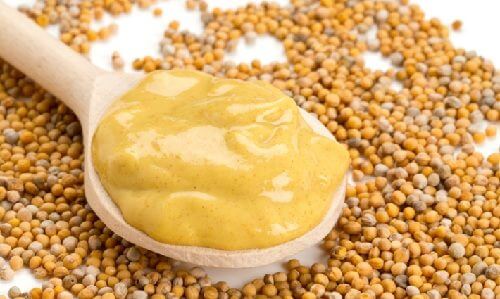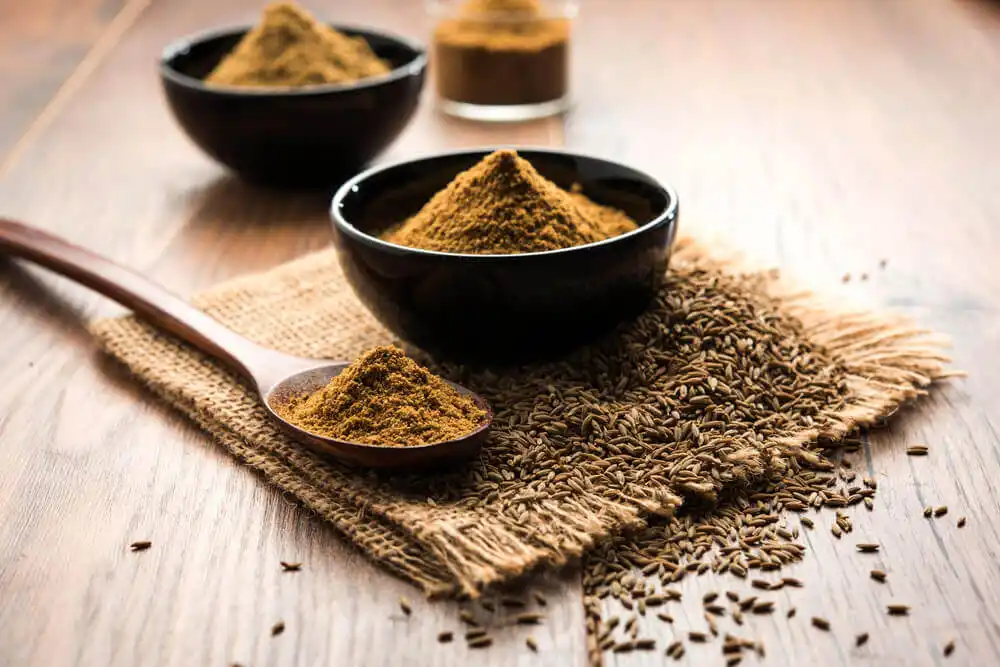Nine Spices that Speed Up the Metabolism


Reviewed and approved by the doctor Karla Henríquez
Maintaining a healthy weight is essential to a healthy lifestyle. However, achieving your desired weight isn’t easy, especially given all the bad habits we tend to have today. As a matter of fact, it’s important to consider your metabolism, as it often doesn’t function correctly.
Luckily, there are some metabolism-boosting spices that you can easily incorporate into your diet.
Here, we tell you what they are and how you can include them in an adequate plan for losing weight.
Spices in diet and weight loss
Herbs and spices have been commonly used in cooking throughout history and are characteristic of many cultures. They’re aromatic plant substances that give flavor, color, and aroma to all kinds of dishes.
In addition, many of them have been valued as ingredients for medicinal purposes. In fact, in recent years, numerous scientific studies have supported some of their positive health-giving properties.
It’s also believed that spices can play a role in weight loss. They’re essential for creating attractive and tasty recipes, and prove that ‘dieting’ doesn’t have to be at odds with the pleasure of eating.
Furthermore, it’s known that some of them contain specific properties that could help increase energy expenditure, fight cravings, and improve digestion and inflammation.
You’ll probably be interested to know what spices they are, so you can stock up on them at home. Indeed, they’re extremely useful, and not only if you’re dieting. In fact, adding them to your diet on a regular basis also provides other health benefits.
The best spices to speed up metabolism
The spices that we recommend here have a large number of nutrients that could help in weight loss and improve your quality of life in general.
In addition, many of them have properties to improve arterial hypertension, type 2 diabetes mellitus, or myocardial infarction. These are problems closely related to obesity. Furthermore, these spices will improve your overall state of health.
1. Mustard
The mustard plant belongs to the cruciferous family, which includes cabbage, Brussels sprouts, and broccoli. Mustard seeds help speed up your metabolism because they increase your body temperature and help you burn calories more efficiently.
To include mustard in your diet, eat three teaspoons of ground mustard seeds before exercising. This will help you burn some extra calories.
The best option to obtain these benefits is to consume the seed. Although you could opt for commercial mustard, it usually contains preservatives and salt that cause the opposite effect to that desired.
2. Turmeric
Turmeric is an orange spice widely used in the culinary field. It’s even regularly used as a colorant in many manufactured foods.
According to different studies, such as one published in the European Review for Medical and Pharmacological Sciences, this spice has the ability to reduce the formation of fatty tissue.
This means that consuming it reduces body fat and prevents weight gain. It’s also useful in the treatment of diabetes as it improves insulin resistance and regulates hyperglycemia.
Turmeric can be used to flavor many dishes such as stir-fries or vegetable soups. It can also be introduced at breakfast or mid-morning in teas and flavored milks.
3. Ginger
Do you want to help your body burn fat but find that exercise isn’t enough? We know that a really common problem often concerns the amount of exercise you need to reach your desired weight.
Luckily, ginger causes the body to use stored fat for extra fuel, as evidenced by research published in Critical Reviews in Food Sciences and Nutrition.
In addition, ginger is capable of calming and relaxing the gastrointestinal tract, thanks to its anti-inflammatory properties. This could improve abdominal swelling and poor digestion.
To obtain these benefits you have various options. The easiest is to consume a cup of ginger tea daily. You can make it part of your breakfast routine. Alternatively, you can use ginger as a base for your green smoothies.
You might also like to read: The Properties and Uses of Ginger
4. Cardamom
Cardamom is an aromatic spice widely used in the Ancient East as a medicinal remedy against digestive disorders.
It has a rather peculiar spicy and sweet flavor. In fact, some people may find it unpleasant the first time they taste it.
However, it’s ideal for increasing the body’s ability to burn stored fat. Some studies show it prevents the accumulation of fat in the abdominal area. That said, to date, it’s only been tested on animals.
5. Cinnamon
Cinnamon comes from the trunks of some trees. Once dried, it forms the characteristic branches that we all recognize.
This spice has multiple benefits such as reducing acidity, regulating intestinal rhythm, fighting the flu, and lowering triglyceride and bad cholesterol (LDL) levels.
It’s also proven that cinnamon can regulate blood sugar. In turn, this reduces appetite. Cinnamon also facilitates the use of glucose by cells.
Due to these properties, it’s been demonstrated to have robust anti-diabetic effects. It contributes to modulating blood glucose levels, thus facilitating the management of the disease.
To take advantage of all these benefits, all you have to do is add a little cinnamon powder to your daily yogurt or fruit. Another alternative is to prepare cinnamon tea. Alternatively, you can add a little to milk, or use it as a base for other drinks.
6. Cumin

Cumin is a spice that, in addition to speeding up metabolism, gives foods a particular flavor and aroma. It has a wide variety of properties that help you lose weight.
Cumin has anti-inflammatory properties that are extremely useful in conditions of the abdomen that cause swelling. It also reduces gases and is a natural antioxidant that stimulates metabolic expenditure.
In a study published in the journal, Complementary Therapies in Clinical Practice, the effects of adding three grams of cumin to yogurt twice a day were observed.
Overweight women who took it lost more weight, waist circumference, and fat mass compared to the placebo group. Cumin was added as part of their proper diet. However, although this effect has been noted, it hasn’t been possible to demonstrate a cause-effect relationship.
7. Black pepper
Black pepper provides a spicy touch to food and is one of the most common spices in many countries.
One of its main positive functions for body weight control is that it inhibits the formation of new fat cells. This is due to one of its main compounds, piperine, whose effects have been tested on animals.
It’s likely that you already use pepper as one of your usual condiments. If this isn’t the case, make sure you start seasoning your food with it on a daily basis.
You might be interested to read: Check Out The Best Herbs and Spices for Your Brain
8. Cayenne
This seasoning belongs to the Capsicum family and is a chile pepper with moderate spiciness. They’re long thin red vegetables that can be consumed either fresh or in powder form.
Without a doubt, cayenne is one of the most commonly used spices to help speed up metabolism and lose weight. In fact, existing data shows that it can increase lipid oxidation, inhibit fat accumulation, induce heat production in the body, and control appetite.
It can be used to season meat, fish, legumes, or vegetables.
9. Fenugreek
Perhaps less well known than the previous examples, fenugreek is an extremely aromatic spice that can be used in all kinds of dishes. You just have to be careful and add it in moderation as it can be a little bitter.
Used in extract form, it’s been shown to be useful in improving carbohydrate metabolism and increasing energy levels obtained from food. In addition, it also has the ability to suppress appetite.
Some advice about spices to speed up the metabolism
As you can see, there are some condiments that have been traditionally used to speed up the metabolism. As such, it could also be assumed that they’d promote weight loss.
However, it must be taken into account that many of the scientific studies that report these properties have been conducted with animals or with extracts of the different spices (therefore much stronger than the spices themselves).
For this reason, they should be considered as a general aid to losing weight and not as slimming remedies or supplements.
It’s also necessary to take into account that spices are, in general, safe when used in the amounts required in recipes. However, if you want to use them in high doses or in the form of food supplements, it’s advisable to consult a health professional.
It’s well known that spices have other benefits and effects on the body. For this reason, if you’re taking medication or suffering from any disease, you should consult a doctor before using them to avoid any interactions and unwanted side effects.
Including spices in the diet to speed up the metabolism
To lose weight in a healthy and lasting way, you must supplement these spices that speed up the metabolism with a daily exercise routine and a balanced diet.
These spices should be added regularly to your diet but in moderation, since use in large quantities isn’t always synonymous with a greater effect.
All cited sources were thoroughly reviewed by our team to ensure their quality, reliability, currency, and validity. The bibliography of this article was considered reliable and of academic or scientific accuracy.
- Costello RB, Dwyer JT, Saldanha L, Bailey RL, Merkel J, Wambogo E. Do Cinnamon Supplements Have a Role in Glycemic Control in Type 2 Diabetes? A Narrative Review. J Acad Nutr Diet. 2016 Nov;116(11):1794-1802. doi: 10.1016/j.jand.2016.07.015. Epub 2016 Sep 8. PMID: 27618575; PMCID: PMC5085873.
- Di Pierro F, Bressan A, Ranaldi D, Rapacioli G, Giacomelli L, Bertuccioli A. Potential role of bioavailable curcumin in weight loss and omental adipose tissue decrease: preliminary data of a randomized, controlled trial in overweight people with metabolic syndrome. Preliminary study. Eur Rev Med Pharmacol Sci. 2015 Nov;19(21):4195-202. PMID: 26592847.
- Gregersen N. T, Belza A, et al. Acute effects of mustard, horseradish, black pepper and ginger on energy expenditure, appetite, ad libitum energy intake and energy balance in human subjects. British Journal of Nutrition. Febrero 2013. 109 (3): 556-63.
- Jarvill-Taylor K. J, Anderson R. A, et al. A hydrocychalcone derived from cinnamon functions as a mimetic for insulin in 3T3-L1 adipocytes. Journal of the American College of Nutrition. Agosto 2001. 20 (4): 327-36.
- Koithan M, Niemeyer K. Using herbal remedies to maintain optimal weight. J. Nurse Pract. Febrero 2010. 6 (2): 153-154.
- Maharlouei N, Tabrizi R, Lankarani KB, Rezaianzadeh A, Akbari M, Kolahdooz F, Rahimi M, Keneshlou F, Asemi Z. The effects of ginger intake on weight loss and metabolic profiles among overweight and obese subjects: A systematic review and meta-analysis of randomized controlled trials. Crit Rev Food Sci Nutr. 2019;59(11):1753-1766. doi: 10.1080/10408398.2018.1427044. Epub 2018 Feb 2. PMID: 29393665.
- Park U-H, Jeong H-S, et al. Piperine, a component of black pepper, inhibits adipogenesis by antagonizing PPARy activity in 3T3-L1 cells. Journal of Agriculture and Food Chemistry. Abril 2012 60 (15): 3853-60.
- Rahman M, Nazmul Alam M, et al. Cardamom powder supplementation prevents obesity, improves glucose intolerance, inflammation and oxidative stress in liver og hihi carbohydrate high fat diet induced obese rats. Lipids in Health and Disease. Agosto 2017. 16:151.
- Zare R, Heshmati F, et al. Effect of cumin powder on body composition and lipid profile in overweight and obese women. Complementary Therapies in Clinical Practice. Noviembre 2014. 20 (4): 297-31.
- Zheng J, Zheng Sh, et al. Dietary capsaicin and its anti-obesity potency: from mechanism to clinical implications. Bioscience Reports. Junio 2017. 37 (3): BSR20170286.
This text is provided for informational purposes only and does not replace consultation with a professional. If in doubt, consult your specialist.








